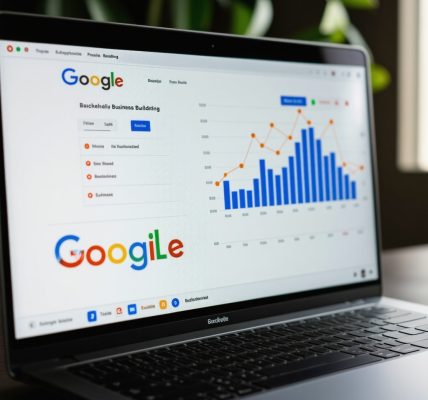Why Your Local SEO Might Be Drowning in a Sea of Citations
Imagine your business as a lighthouse in a foggy harbor. Your potential customers are ships lost in the mist, and your Google My Business (GMB) citations are the beacon lighting the way. But here’s the kicker: inconsistent or sloppy citations are like flickering lights that confuse rather than guide. If you’ve ever wondered why your local SEO efforts seem to hit a wall, it’s time to dive deep into the art and science of citation management.
Mastering the Citation Game: It’s Not Just About Quantity
We often hear that more citations equal better local rankings, but reality tells a richer tale. The quality, consistency, and accuracy of those citations are the real MVPs. Think of it this way: a single, well-maintained citation on a reputable directory can trump dozens of careless mentions scattered across dubious platforms. The trick? Nailing the NAP consistency—your business Name, Address, and Phone number—and ensuring they’re uniform everywhere online. This precision builds trust with Google and, ultimately, your customers.
Ever Wondered Why Some Businesses Always Lead the Local Pack?
It’s no accident. They’ve cracked the citation code by not only maintaining flawless NAP consistency but also by strategically selecting citation sources that match their industry and locale. Beyond that, they regularly audit their citations to weed out duplicates, outdated info, or conflicting data. Tools like Moz Local or BrightLocal can be your secret weapons here, automating much of the heavy lifting. According to Moz’s Local Search Ranking Factors, citation consistency is one of the foundational pillars of local SEO success.
Keeping Your Citations Fresh: The Unsung Hero of Local SEO
Just like you wouldn’t forget to water a prized plant, don’t neglect your citations. Businesses evolve—maybe you’ve moved, rebranded, or added new services—and your citations should reflect that evolution. Regularly updating your GMB profile and citations prevents Google from getting mixed signals and keeps your business relevant in local searches. Need a detailed walkthrough? Check out this Complete Guide to GMB Citation Management for expert tips.
Want to Boost Your Local Presence? Start with Your Citations
If you’ve been skimming this column thinking citation management is just an annoying task, think again. It’s your local SEO foundation. So, what are you waiting for? Dive in, audit those citations, and nourish them regularly. Your business lighthouse deserves to shine bright and guide the local ships safely to harbor.
Got a citation horror story or a tip that transformed your local SEO game? Share your experiences in the comments below — let’s crowdsource the wisdom and light the way for others!
Why Consistency Alone Isn’t Enough for Citation Excellence
While NAP consistency forms the backbone of citation management, savvy local SEO experts know that it’s only the starting point. In today’s competitive landscape, citations must also be contextually relevant and enriched with additional data points such as business descriptions, categories, photos, and even localized keywords. These elements help search engines better understand your business’s niche and geographical focus, pushing your profile to the forefront of relevant local searches.
Moreover, the strategic diversification of citation sources is essential. Over-reliance on a handful of generic directories may limit your visibility. Instead, target industry-specific directories, local chambers of commerce listings, and even hyper-local community sites. This not only amplifies your reach but also signals to Google that your business is deeply embedded in the community fabric.
Leveraging Technology: How Automated Citation Audits Save Time and Boost Accuracy
Manual citation management can feel like navigating a minefield—one wrong move and your SEO efforts could backfire. Fortunately, advanced tools offer automated citation audits that highlight inconsistencies, duplicates, and outdated entries. Platforms like BrightLocal and Yext provide comprehensive dashboards that track citation health and recommend corrective actions.
Regularly scheduling these audits means you catch and fix issues before they affect your rankings. This proactive approach also allows you to track progress over time, making your local SEO strategy data-driven and measurable. Don’t underestimate the power of automation to maintain a pristine citation profile effortlessly.
How Can You Integrate Citation Management into a Holistic Local SEO Strategy?
It’s tempting to treat citation management as a standalone task, but the most effective local SEO campaigns weave it seamlessly into broader efforts. For instance, pairing citation optimization with Google Business Profile enhancements, localized content marketing, and reputation management amplifies your online presence exponentially.
Consider your citations as the foundation of a strong local SEO house. Without solid foundations, even the most visually appealing upper floors—like engaging posts or stellar reviews—might fail to hold up under search engine scrutiny. Align your citation strategy with other local SEO components for a cohesive and powerful impact. For practical steps on integrating these efforts, explore our Comprehensive Local SEO Optimization Techniques.
Understanding the Impact of Negative or Duplicate Citations on Your Rankings
Did you know that duplicate or conflicting citations can confuse search engines, leading them to distrust your business information? This confusion often results in lower rankings or even loss of visibility in local search results. Negative citations—those that contain incorrect addresses, old phone numbers, or mismatched business names—can harm your credibility and reduce click-through rates.
Regularly cleansing your citation portfolio to eliminate these harmful entries is crucial. According to a detailed study by Search Engine Journal, businesses that maintain clean, accurate citations see up to a 20% improvement in local search rankings compared to those with inconsistent data (Search Engine Journal, 2023).
Implementing a citation cleanup schedule, combined with ongoing monitoring, ensures your local SEO foundation remains robust and trustworthy.
Ready to supercharge your local SEO with expert citation management? Share your questions or success stories in the comments below and help build a community of local SEO champions. If you want to dive deeper into optimizing your Google Business profile for maximum impact, check out our guide on How to Optimize Your Google Business Listing Effectively.
Deep Dive into Citation Enrichment: Beyond Basic NAP Consistency
While maintaining uniform Name, Address, and Phone number (NAP) details is imperative, elevating your citations with enriched data is what truly sets expert local SEO apart. Incorporating detailed business descriptions, rich images, operational hours, and even customer testimonials within citation listings provides search engines with a multi-dimensional understanding of your brand’s local relevance and authority.
For instance, embedding localized keywords naturally in your business descriptions on citation sites can significantly enhance contextual signals. This strategy aligns with Google’s increasing reliance on semantic search and user intent interpretation, enabling your business to appear in highly targeted local queries. Industry-specific attributes such as certifications, service specialties, or eco-friendly practices can also be integrated where supported, further differentiating your profile.
What Are the Best Practices for Maintaining Citation Data Accuracy at Scale?
Scaling citation management across multiple locations or franchises presents a unique challenge. Implementing centralized data management systems, such as a dedicated Local Listing Management (LLM) platform, ensures that updates propagate uniformly across all citation sources. Moreover, leveraging APIs for direct integrations with major directories can automate updates, drastically reducing human error and latency.
Regularly scheduled audits using automated tools should be complemented by manual spot checks to verify nuanced details, such as localized service offerings or seasonal hours, which automated scans might overlook. Establishing a documented internal process for citation updates, including roles and responsibilities, streamlines ongoing maintenance and mitigates risks associated with staff turnover.
Harnessing the Power of Structured Data Markup to Amplify Citation Impact
Structured data markup, specifically schema.org LocalBusiness markup, is an advanced technique that enhances how search engines interpret your business information across the web. By embedding this semantic code on your website—mirroring your citation NAP and enriched business attributes—you create a reinforced trust signal that complements your citation profile.
This approach not only aids in generating rich snippets in SERPs but also ensures consistency between on-site data and external citations, a factor Google scrutinizes to combat misinformation. Integrating structured data with citation management elevates your local SEO strategy from reactive maintenance to proactive optimization.
Strategically Navigating Citation Removal and Suppression: When Less Is More
While adding citations is often encouraged, discerning removal or suppression of harmful or redundant citations is a nuanced tactic that can yield significant local ranking improvements. Duplicate or incorrect listings on authoritative directories may dilute your business’s perceived credibility. Engaging with directory platforms to merge duplicates, suppress outdated listings, or claim unverified profiles requires diplomacy and persistence.
In some cases, removing citations on low-quality or spammy directories can prevent negative associations. However, care must be taken to assess the authority and backlink value of each citation before removal to avoid unintended SEO fallout.
Industry veterans recommend maintaining a citation audit log to document removal requests and outcomes, facilitating accountability and future troubleshooting.
For more detailed methodologies and case studies on citation removal strategies, refer to the comprehensive analysis by Search Engine Land.
Ready to refine your citation management approach with cutting-edge tactics? Engage with our community of SEO professionals by sharing your questions or advanced tips below. Stay tuned as we delve deeper into integrating citation strategies with reputation management and localized content marketing for unbeatable local search dominance.
Why Ignoring Citation Enrichment Could Be Costing You Local Search Dominance
In the ever-evolving local SEO landscape, merely maintaining consistent NAP details is no longer enough to secure a top spot in Google’s local pack. Citation enrichment—adding detailed business descriptions, photos, service-specific attributes, and localized keywords—is a game changer that enhances your business’s contextual relevance in local searches. This enriched data feeds Google’s semantic algorithms, helping your profile resonate more deeply with user intent and niche-specific queries.
Consider this: businesses that strategically embed localized keywords within their citation descriptions experience a notable uplift in rankings, as Google’s AI increasingly favors contextually rich and semantically relevant information. For a deep dive into optimizing your Google Business Profile with powerful keywords, explore our guide on Top GMB Business Description Keywords to Enhance Your Profile.
Harnessing Structured Data Markup: The Underutilized SEO Catalyst
Structured data markup, especially schema.org LocalBusiness markup, is a sophisticated technique that bridges your website and citation profiles, creating a unified, trustworthy web of information that search engines can easily parse. When your website’s structured data aligns perfectly with your citation NAP and enriched attributes, it sends a strong signal of authenticity and authority to Google, increasing your chances of appearing in rich snippets and local map packs.
According to Search Engine Land’s authoritative analysis, businesses leveraging structured data see measurable improvements in local visibility and user engagement metrics. This synergy between on-site markup and external citations transforms your local SEO from reactive to proactively optimized.
How Can Multi-Location Businesses Efficiently Scale Citation Management Without Losing Data Integrity?
Scaling citation management across multiple storefronts or franchises introduces a complex challenge: maintaining impeccable data integrity while handling numerous listings simultaneously. The solution lies in centralized Local Listing Management (LLM) platforms equipped with API integrations that push real-time updates to all citation sources. This automation drastically reduces errors and ensures uniformity across the digital ecosystem.
However, technology alone isn’t enough. Establishing a robust internal workflow for periodic manual audits is crucial, especially for verifying nuanced details like seasonal hours or localized service offerings that automated scans might miss. This hybrid approach—combining automation with human oversight—ensures your multi-location business maintains a pristine citation profile.
For an advanced roadmap on managing complex citation portfolios, our Expert GMB Citation Services for Enhanced Rankings page offers comprehensive strategies.
Why Do Some Citation Removal Tactics Backfire, and How to Navigate Them Safely?
While pruning harmful or duplicate citations can boost your local rankings, improper removal attempts can inadvertently harm your SEO if done without strategic consideration. Removing citations from high-authority directories without assessing their backlink contributions or domain authority can reduce your profile’s overall strength.
Industry experts recommend maintaining a detailed audit log to track removal requests and outcomes, ensuring transparency and accountability. Engage with directory owners diplomatically to merge or suppress duplicates rather than outright deletion when possible. This nuanced approach preserves valuable SEO equity while cleansing your citation landscape.
To explore advanced citation cleanup tactics with real-world case studies, visit Search Engine Land’s expert guide.
Engage and Share: What Citation Challenges Have You Overcome?
Managing citations is an intricate dance between consistency, enrichment, technology, and strategy. We’d love to hear from you—have you navigated complex citation issues, leveraged structured data markup, or successfully scaled multi-location citation management? Share your insights, questions, or success stories in the comments below to inspire and inform our vibrant local SEO community.
For further mastery of your Google Business Profile and citation strategies, dive into our Complete Guide to Mastering Google Business SEO and unlock the full potential of your local search presence.

Expert Insights & Advanced Considerations
Strategic Citation Diversification Enhances Local Authority
Beyond mere NAP consistency, the deliberate selection of citation sources tailored to your industry niche and local community profoundly impacts your SEO credibility. Including specialized directories, local business associations, and hyper-local digital platforms signals to search engines a deep-rooted presence rather than generic listings scattered randomly.
Automated Audits Combined with Human Oversight Yield Optimal Accuracy
While tools like BrightLocal and Moz Local streamline citation audits, blending automated detection with periodic manual verification ensures subtle business nuances—such as seasonal hours or newly added services—are accurately reflected. This hybrid approach preserves data integrity and reinforces trustworthiness in Google’s eyes.
Structured Data Markup Is the Silent Multiplier of Citation Value
Implementing schema.org LocalBusiness markup on your website to mirror your citation data creates a semantic bridge that elevates your local SEO beyond standard citation practices. This markup enhances rich snippets, aligns on-site and off-site data, and fortifies your profile’s authenticity, facilitating higher rankings and visibility.
Prudent Citation Removal Requires Tactical Evaluation
Not all citation removals are beneficial. Eliminating listings from authoritative directories without assessing backlink equity or domain authority can inadvertently weaken your SEO foundation. Expert practitioners advocate for thorough audits and diplomatic approaches—merging duplicates or suppressing rather than deleting—to maintain citation strength while cleansing inaccuracies.
Scaling Citation Management Demands Centralized Systems and Clear Protocols
Multi-location enterprises must leverage Local Listing Management platforms with API integrations for real-time, uniform updates across all listings. Coupling this technology with well-documented internal workflows and audit schedules prevents discrepancies and ensures each location’s citation profile remains pristine and competitive.
Curated Expert Resources
- Moz Local: A premier tool for citation management and local search ranking insights, offering automated audits and recommendations tailored for citation consistency and authority (Use Moz Local Effectively for GMB Optimization).
- BrightLocal: Comprehensive dashboards for citation health monitoring, reputation management, and performance tracking, pivotal for maintaining citation accuracy at scale.
- Search Engine Land: In-depth analyses and case studies on advanced citation cleanup techniques and structured data implementation (Advanced Local SEO Citation Cleanup Techniques).
- RankingSEO GMB Guides: Extensive resources covering citation management, Google Business Profile optimization, and local SEO strategies (Complete Guide to Mastering Google Business SEO).
- Schema.org LocalBusiness Markup Documentation: Authoritative specifications for implementing structured data markup to enhance local search visibility.
Final Expert Perspective
Mastering citation management today transcends simple consistency; it demands an integrated strategy enriched with data precision, contextual relevance, and technological finesse. The nuanced interplay of diversified citation sources, automated and manual audits, structured data markup, and cautious pruning forms the backbone of a resilient local SEO presence. By embracing these advanced practices, businesses can transcend traditional ranking barriers and secure sustained prominence in local search results.
For those eager to elevate their expertise further, exploring comprehensive frameworks on optimizing your Google Business listing effectively and integrating citation strategies with reputation management will be invaluable. Engage with this evolving landscape by sharing your insights or challenges—collective wisdom drives innovation and success in local SEO.



